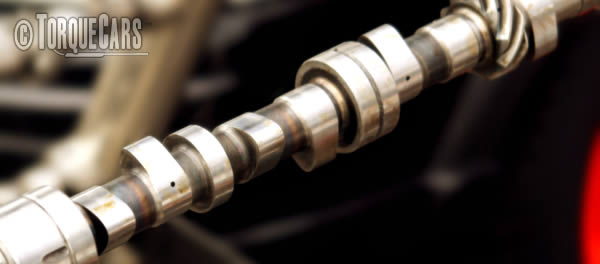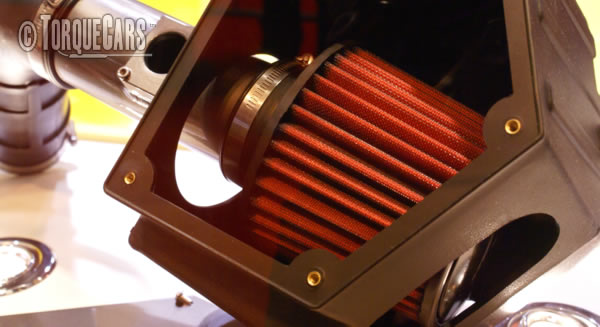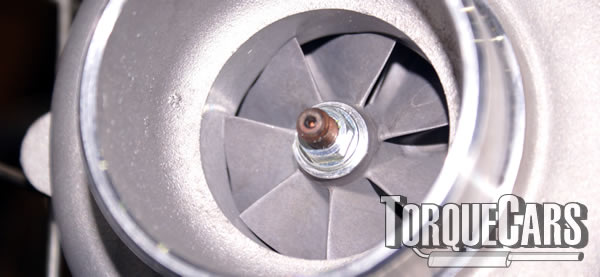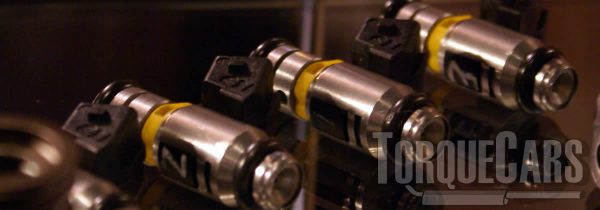BMW M57 Tuning
"All you need to know about tuning the BMW M57 engine!"
The BMW M57 engine is a renowned powerplant produced from 1998 to 2013, known for its exceptional performance and durability. It is a good tuning project, and we see a growing number of mods & upgrades for the M57, on a monthly basis.
With a six-cylinder inline configuration, the M57 engine is a testament to BMW's commitment to engineering precision, delivering a balance of power and refinement.
During its production years, this engine was featured in various BMW models, including the 3 Series, 5 Series, and X3, contributing to the brand's reputation for delivering high-performance vehicles.
The M57 engine introduced common rail direct fuel injection, an innovation that enhanced fuel combustion efficiency and reduced emissions, aligning with evolving environmental standards.
Furthermore, the M57 engine included advanced technologies like a variable geometry turbocharger (VGT), which improved power delivery across the engine's rev range.
This engine is celebrated for its robust build quality and longevity, making it a reliable choice for those who value both performance and long-term durability.
Enthusiasts and tuners have explored various modifications for the M57 engine, unlocking additional power and torque potential while preserving its reputation for reliability and efficiency.
Our aim here is to examine the options for your M57 tuning and provide tips on the ultimate upgrades. BMW M57 great basis for a tuning project and with carefully picked enhancements like a remap, turbo upgrades and camshafts you will really maximize your driving opportunities.
The M57 replaced the M51 and comprised a strong cast iron block initially which was later replaced with an Aluminum block. The early blocks are favored by tuners thanks to the strength they offer, and these engines can make very decent power gains from a simple remap, and a few bolt on parts.
The design of the M57 specified a small sequential turbo design, and pretty much eliminates turbo lag, making this engine feel like a very large NASP block. It is no surprise to us that the M57 offers so much tuning potential.
We do wonder if BMW detuned these from the factory so they could sell the petrol units. Simple tunes or remaps are adding around 80hp to the engine.
Watch my video overview and tips on BMW Tuning. Be sure to keep up with our latest YouTube content and subscribe.
History, Power & Specs of the Engine
Engines were all similar but the higher powered versions generally had a lower compression ratio and twin turbo setup. This allowed them to run more boost safely and made the engines much more efficient, so swapping a twin turbo in will not achieve the same results without a lower compression ratio.
The M57 straight-6 diesel engine based on M51 and came as a 2.5 2.9 and 3.0. It didn't have a very high redline but provided lots of torque and responds really well to mapping.
M57D25
2000–2003
- BMW E39 525d
- 2001–2003
- Opel Omega B 2.5DTI
M57D25TÜ
2003–2007
- BMW E60/E61 525d
M57D30
M57D30TÜ
- E46 as 330d/330Cd/330xd
- E83 as X3 3.0d
- E53 as X5 3.0d
- E60/E61 as 530d/530xd
- E65/E66 as 730d
- E83 as X3 3.0d
- E60/E61 as 535d
M57D30TÜ2
- E90/E91 as 325d
- E60/E61 as 525d
- E65/E66 as 730d
- E90/E91 as 330d/330xd
- E60/E61 as 530d/530xd
- E60/E61 as 530d
- E70 as X5 xDrive30d
- E71 as X6 xDrive30d
M57D30TÜTOP
- E60/E61 as 535d
- E63/E64 as 635d
- E70 as X5 3.0sd
- E71 as X6 xDrive35d
- E83 as X3 3.0sd
- E90/E91/E9/E93 as 335d
M57D25:
BMW E39 525d (2000-2003) - With power ranging around 163 horsepower
M57D25TÜ:
BMW E60/E61 525d (2003-2007) - With power ranging around 177 horsepower
M57D30:
BMW E38 as 730d - With power ranging around 184-193 horsepower
BMW E39 as 530d - With power ranging around 184-193 horsepower
BMW E46 as 330d/330xd - With power ranging around 181-201 horsepower
BMW E53 as X5 3.0d - With power ranging around 181-201 horsepower
M57D30TÜ:
BMW E38 as 730d - With power ranging around 184-193 horsepower
BMW E39 as 530d - With power ranging around 184-193 horsepower
BMW E46 as 330d/330Cd/330xd - With power ranging around 181-218 horsepower
BMW E53 as X5 3.0d - With power ranging around 181-218 horsepower
BMW E60/E61 as 530d/530xd - With power ranging around 218-235 horsepower
BMW E83 as X3 3.0d - With power ranging around 181-218 horsepower
M57D30TÜ2:
BMW E60/E61 as 525d - With power ranging around 177-197 horsepower
BMW E65/E66 as 730d - With power ranging around 218-231 horsepower
BMW E70 as X5 xDrive30d - With power ranging around 215-235 horsepower
BMW E71 as X6 xDrive30d - With power ranging around 215-235 horsepower
BMW E90/E91 as 325d - With power ranging around 194-201 horsepower
BMW E90/E91 as 330d/330xd - With power ranging around 231-254 horsepower
BMW E60/E61 as 530d/530xd - With power ranging around 218-235 horsepower
BMW E60/E61 as 530d - With power ranging around 218-235 horsepower
M57D30TÜTOP:
BMW E60/E61 as 535d - With power ranging around 272-286 horsepower
BMW E63/E64 as 635d - With power ranging around 272-286 horsepower
BMW E70 as X5 3.0sd - With power ranging around 286 horsepower
BMW E71 as X6 xDrive35d - With power ranging around 286 horsepower
BMW E83 as X3 3.0sd - With power ranging around 272-286 horsepower
BMW E90/E91/E9/E93 as 335d - With power ranging around 282-286 horsepower
Tuning the BMW M57 and best M57 performance parts.
Best M57 Parts & Mods
ECU Tunes/Remaps
The best M57 parts on an engine are usually the ones that give the best value for money.
The top of the list for our best mods on the M57 is a remap/ECU tune, and if you are only planning one simple mod, this should be it.
A standalone tune/remap on the M57 will generally push the 286bhp to around 365bhp, with an improved intercooler this will be around 375bhp. Removing the DPF *(Illegal in most regions) will net another 20hp.
Please note that remapping the M57 is not recommended if your car is equipped with CP4 fuel pump, if you have CP3 then you're free to remap but with CP4 it is a big no as the pump will very quickly fail, but a swap to the CP3 or better unit is usually a good option for most projects.
We strongly recommend you add a performance air filter, as you are making quite a bit more power with a remap, and factory airbox will struggle to flow enough air.
ECU flashing should help to establish the full potential of all the parts you've fitted to your M57.
On to the M57 Mods & Upgrades
We won't be swayed by popular M57 parts, they need to be cost effective. The early cast iron blocks are considered bulletproof and make a great basis for your tuning project.
The cam profile plays a big part in the engines power output so cam upgrades make quite a large difference. The intake and exhaust durations will alter depending on the chosen cam profile, so large bhp gains are on offer for cam upgrades.

Fast road camshafts normally increase the power across the rpm band, you might lose a little low end torque but top end will be better. When you are replacing the camshaft, it is advisable to upgrade the valve springs too.
Competition camshafts, increase the top end band but as a result, the car will not idle smoothly and low end power nearly always suffers. Due to the low rpm range of the M57 I feel it is questionable as to improvements offered by a cam on a road car.
For a daily driver must carefully try to optimize your torque band to your preferences.
I'd be surprised if you find a M57 Motorsport camshaft is a pleasure to live with when driving in heavy traffic. The low end idle will be very lumpy and irregular, so something you would notice on a track when you drive in the upper third of the rpm band, but on roads this is a serious issue and we've heard from lots of drivers lamenting their decision to add an extreme competition cam profile to their engine.
We've seen some decent cams appearing, but please don't view cams as a standalone upgrade*, you should get it mapped, replace the valve springs, and for serious power gains address the fuelling and turbocharger with suitable upgrades.
*A cam with 9.2mm lift and 256° Degrees Duration such as the one from Darkside Developments is advertised as a stage 1 bolt in upgrade. But you should still replace other valvetrain components to ensure reliability.

Some M57 engines respond better to less aggressive cam durations so view each engine as unique.
The ecu map and injectors and fuel pump also will say much on the bhp gains you'll make.
A longer valve duration can alter the bhp band and on most engines the exhaust and intake durations do not need to match, although most cams and tuners use matched pairs there are some advantages to extending the intake or exhaust durations.
Please watch our video which covers the 5 principles of tuning your car. Be sure to keep up with our latest YouTube content and subscribe.
Best mods for your M57
- Forced induction upgrades - Adding a turbocharger is the most dramatic method to improve intake air supply, ensuring you are able to use more fuel and make higher power. Although one of the most technically difficult mods it does provide the largest gains.
- Camshaft Upgrades: One with 9.2mm lift and 256° Degrees Duration is pretty much a bolt on upgrade, but other mods should be done to support this.
- Engine Tunes - A Remapped M57 ECU ensures the biggest gains compared to your outlay, aftermarket ECUs, and Tuning boxes are all alternatives.
- Flowing and porting the Head - Head work will get air flowing into the engine while removing turbulence or restrictions.
- Intake Mods and Performance Exhausts - Note that on their own these mods will NOT ADD POWER , but they can help lift power after other mods by freeing up a restriction.
M57 Tuning Stages
Typical stage 1 mods often include: drilled & smoothed airbox, Remaps/Tunes/piggy back ECU, Sports exhaust header/manifold, Intake manifolds, Fast road camshaft, Panel air filters.
Typical stage 2 mods often include: induction kit, high flow fuel injectors, Sports catalyst & performance exhaust, Ported and polished head, Fast road cam, fuel pump upgrades.
Typical stage 3 mods often include: Engine balancing & blueprinting, Competition cam, Adding or Upgrading forced induction (turbo/supercharger), Crank and Piston upgrades to alter compression, Twin charging conversions, Internal engine upgrades (head flowing porting/bigger valves).
Getting air and fuel into the M57 engine is essential for any engine modification, and the added torque and power you obtain are well worth the effort.
The squish phase of an engine's combustion process begins with the introduction of fuel to the engine's cylinders via the intake manifolds, also known as headers.
Swirl flap replacement is often recommended, the OEM ones can fail and cause lots of damage, and they are only generally effective in low RPM conditions. Swirl flap removal kits are also an option, so if you didn't want the swirl flaps they can be removed, but they do help fuel economy and improve emissions at lower RPM's.
The shape and rate of flow of the Intake manifolds can make a large change to fuel engine efficiency on the M57.
We often see manifolds are needing aftermarket parts, although some OEMs provide decently flowing headers.
Larger M57 valves, getting M57 port enlargement and head flowing will also increase torque, the fantastic side effect is it will give you a greater torque increase on other modifications.
Turbo upgrades for the M57

The more air you can get into an engine, the more fuel it can burn and uprating the induction with a turbocharger upgrade makes significant power gains.
There are a few turbo kits around for the M57, that will take power to anywhere from 350hp to around 400hp. There are tuning limits for every engine, with some being over specified and some showing stress at mid range power gains.
Research these limitations and install forged components to handle the power.
GotTuned Hybrid Turbochargers:
- GotTuned 3.0D 330 GT2265V Hybrid Turbocharger:
- Designed for approximately 330 Crankshaft HP.
- Key mods include journal bearings, compressor housing changes, and a genuine Garrett clipped Turbine Wheel.
- Achieves quick spool with a lighter/enlarged Billet Wheel.
- Oil-cooled, efficient Variable Nozzle Turbine (VNT).
- 100% Plug & Play, dynamically balanced, and features genuine Garrett components.
- GotTuned 3.0D 370 GT2365V Hybrid Turbocharger:
- Built for around 370 Crankshaft HP.
- Similar to the 330 package but with an enlarged and clipped Turbine Wheel.
- GotTuned 3.0D 400 GT2571V Hybrid Turbocharger:
- Aiming for approximately 400 Crankshaft HP.
- Shares the same modifications as the 330 package but with a bigger Turbine Wheel and high-flow 9-blade design.
- GotTuned 3.0D 450 GT2871V Hybrid Turbocharger:
- Designed to generate about 450 Crankshaft HP.
- Similar to the 400 package but with an enlarged Turbine Wheel featuring high-flow 9 blades.
Turbosystems Upgrade Turbocharger Sets:
- Turbosystems Stage 1 Kit:
- Includes KP39 and K26 turbochargers.
- Enhancements such as reinforced thrust bearing, impeller, and turbine wheel.
- Compressor wheel machined from solid material.
- Power range: 420+ HP.
- Turbosystems Stage 2 Kit:
- Also includes KP39 and K26 turbochargers.
- Features dual ceramic ball bearings to eliminate turbo lag.
- Power range: Up to 500 HP.
- Darkside
- GTD2872VR Billet Ball Bearing Hybrid with Electronic Actuator (BMW V-Band Housing) (400hp)
- GTD2872VRK (Electronic) This replaced the GTB2566VK (400hp+)
- GTD2872VRK Billet Hybrid Turbocharger Kit with Vacuum Conversion for around 350bhp & 540Ft/Lbs
We note 4 bar air sensors coping with quite large power gains, whereas the OEM air sensor was restricting power at a much lower level.
To maximize the benefits of a turbocharger upgrade, a combination of additional modifications is often necessary. Let's break down each of the mentioned mods and what they do:
ECU & Transmission Tuning: Electronic Control Unit (ECU) tuning involves reprogramming the engine's computer to optimize various parameters, such as air-fuel ratio and ignition timing. This ensures that the engine operates efficiently with the new turbocharger, maximizing its potential. Transmission Tuning: Transmission tuning adjusts the transmission's shift points and behavior to match the increased power output. This helps maintain smooth gear changes and can improve acceleration.
R90 Fuel Pump: Upgrading the fuel pump to an R90 model ensures a higher fuel flow rate, which is essential to deliver the extra fuel required for the increased air from the turbocharger. This helps prevent fuel starvation under high load conditions.
New Valve Cover Gasket Kit: A new gasket kit for the valve cover is essential for preventing oil leaks, especially when the engine experiences higher pressure and temperature due to increased boost.
DPF Delete Exhaust: Removing the Diesel Particulate Filter (DPF) from the exhaust system allows for better exhaust flow, reducing backpressure. This is often done to improve performance, but it may have legal and environmental implications.
Swirl Valve Deletes: Swirl valves are often found in the intake manifold and are designed to control airflow. Deleting them can improve airflow into the engine and reduce potential restrictions.
New Gaskets and O-rings: These are used throughout the engine to ensure proper sealing. When you're making significant modifications, it's important to replace gaskets and O-rings to prevent any potential leaks and ensure a tight seal.
Upgrading the intake system allows for improved airflow into the engine. This mod complements the turbo upgrade by ensuring that the engine can breathe more freely.
Intercooler: An intercooler helps cool the compressed air before it enters the engine, improving the air's density.
EGR Race Pipe: An Exhaust Gas Recirculation (EGR) race pipe removes or bypasses the EGR system. This modification can help reduce intake air temperature and improve engine performance.
The combination of these modifications is designed to ensure that the turbocharger upgrade can be maximized. They work together to improve airflow, fuel delivery, and engine management.
However, it's important to note that these modifications should be performed by experienced professionals, and the legality of certain modifications, such as DPF delete and EGR race pipe, may vary by location and should be checked for compliance with local regulations.
M57 Fuelling / injector upgrades
You will need to ensure that the engine is not starved of fuel so will have to uprate the fuelling when you start exceeding 20% of a bhp and torque increase.
The rail pressures 1600 BAR will start to struggle with higher power gains, but the later M57 were equipped with a 2700 BAR pressure rail, and swapping to the newer parts is a no brainer on the early units.
M57D30TÜ2: This engine typically operates at a fuel injection pressure of 1600 BAR (approximately 23,206 PSI) for most of its versions.
M57TÜ: The earlier M57TÜ engines, prior to the TÜ2 revision, had a fuel injection pressure of 1600 BAR, similar to the M57D30TÜ2.
At around 350hp the OEM fuel pump will start to reach it's limits and for most M57's the fuel rail pressure sensor tends to top out around 2000 Bar but for most tuners this will not be problem and only plays a role when going beyond the 500hp region.
 Don't forget to over specify your injectors flow rate, there are some decent Bosch injector upgrades around. Spray patterns are just as important as the nozzle size/flow rate.
Don't forget to over specify your injectors flow rate, there are some decent Bosch injector upgrades around. Spray patterns are just as important as the nozzle size/flow rate.
Don't forget to look at the fuel pump, and common rail pressure sensor, as these will all affect your tuning results and note that the 0.9cc fuel pump will handle around 550hp easily so should be good for most applications.
If your M57 is equipped with CP4 fuel pump then you should upgrade this especially if remapping, the R90 or R70 are good options. The CP3 seems to be better able to cope when remapped but will usually top out around 350hp. (We mention this because we find many people have swapped their CP3 to a CP4 Assuming it is a better option.)
The rule of thumb is to add 20% when specifying an injector, this takes into account injector deterioration and allows a little spare capacity should the engine require more fuel.
We think this one is common sense, but you'll need to match your fuel injector to the type of fuel your car uses as well.
M57 Exhaust mods downpipes and cat back
You only need to replace your exhaust if your exhaust is actually causing a restriction in flow. The M57 is a rather lazy low RPM engine, compared to some of the higher revving petrol engines around, so exhaust flow is generally sufficient, at least from the catalyst to the rear of the car.
On most factory exhausts you should find that the exhaust flow rate is ok even on modest power gains, but when you start pushing up the power levels you will need to get a better flowing exhaust.
The EGR and cat are common bottlenecks, but removing these is not legal in most regions and areas, so looking for higher flowing options is generally the way to go. The DPF likewise limits the potential of these engines, but removal is not street legal in most places.
Sports exhausts equal out the flow of gases through the engine.
We see the most gains coming from a better header or manifold design, the rest of the exhaust actually flows pretty well so there is not much to be gained from a DPF back system. I am not a fan of the sound of "sports exhausts" on the M57 and personally rate the way BMW designed the silencers, but this is always subjective and you may well have different ideas.
That DPF is sucking around 15bhp from the engine, so finding a higher flowing alternative or if legal in your area removing the DPF will add this missing power and improve engine responsiveness.
But if the exhaust pipe is too big, ie: it's over 2.5 inches bore, you will lose a lot of your flow rate and end up lacking power and torque.
M57 Intake Mods
Contrary to popular belief there is usually a small power gain got by fitting an induction kit, they only become beneficial and are recommended after you increase the engines power to the point where the standard air intake box cannot cope!

Maximum power gains come from a full induction kit with a cold air feed on heavily tuned engines, this can be sited within an air box but a panel filter should suffice for most applications. TorqueCars suggest you use a panel air filter as these are easy to clean and maintain and generally perform better than paper ones.
Weak spots Issues & problem areas on the M57
The M57 engines are generally reliable and solid units, as long as you follow the manufacturers service schedules, and use a good quality oil to ensure longevity. Few problems should happen as long as they are regularly serviced and maintained.
Carbon build up in the head, particularly around the valves which will sap power or create flat spots, this is a larger issue on direct injection engines but should be looked out for on all engines. We have tips on removing carbon build up.
Some of our members have had issues with flat spots or glitches after applying mods and upgrades or tuning, this is not usually related to this engines design, so instead see our article on diagnosing flat spots and problems after tuning which should help you get the bottom of this issue.
Regular oil changes are vital on the M57, especially when tuned and will help extend the life and reliability of the engine.
If you would like to know more, or just get some friendly advice on Tuning your M57 engine please join us in our friendly forum where you can discuss tuning options in more detail with our worldwide members, or read our tuning articles to get a full grasp of the benefits and drawbacks of each modification.
Please help us improve these tips by sending us your feedback in the comments box below.
We love hearing about our website visitors projects, especially the mods done and which work best for you on your car. Which helps us keep our guides and tips up to date helping others with their modified car projects. Your feedback and comments are used to keep this page up to date, and help improve the accuracy of these M57 tuning guides which get regular updates and revisions.
Please Check out my YouTube channel, we're regularly adding new content...
PLEASE HELP: I NEED YOUR DONATIONS TO COVER THE COSTS OF RUNNING THIS SITE AND KEEP IT RUNNING. I do not charge you to access this website and it saves most TorqueCars readers $100's each year - but we are NON PROFIT and not even covering our costs. To keep us running PLEASE Donate here
If you liked this page please share it with your friends, drop a link to it in your favourite forum or use the bookmarking options to save it to your social media profile.
Feedback - What do You Think?
Please use our forums if you wish to ask a tuning question, and please note we do not sell parts or services, we are just an online magazine.
Help us improve, leave a suggestion or tip
Please watch this video and subscribe to my YouTube channel.

 Click to accept YouTube Cookies & Play.
Click to accept YouTube Cookies & Play.